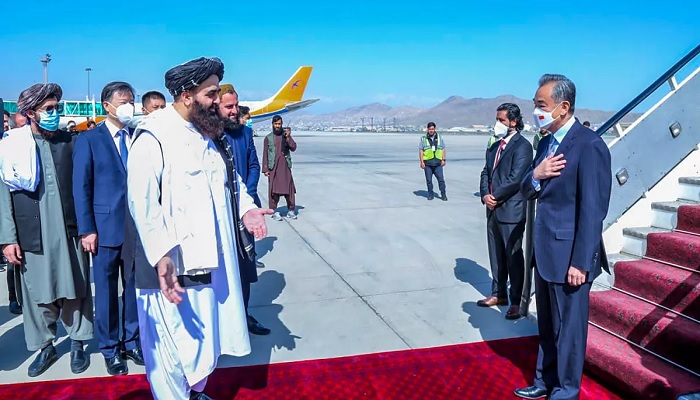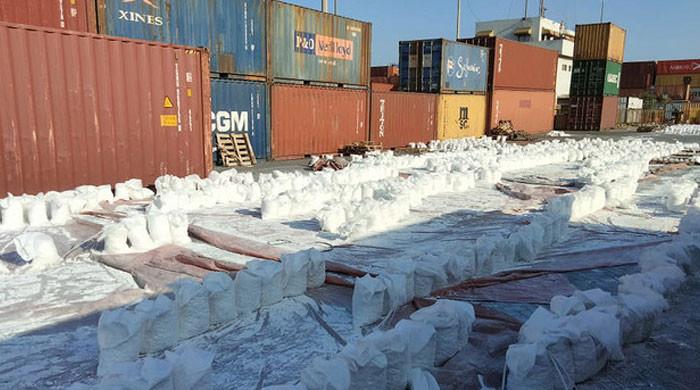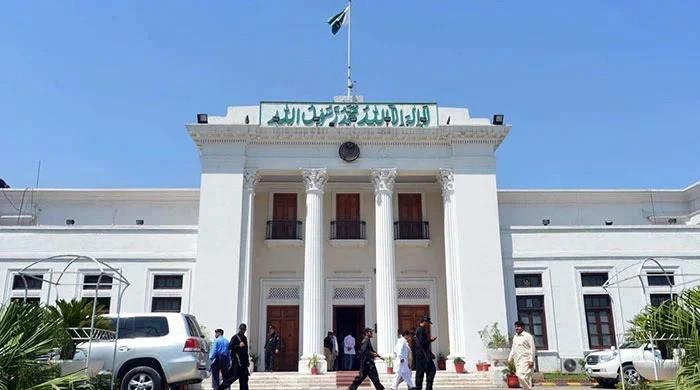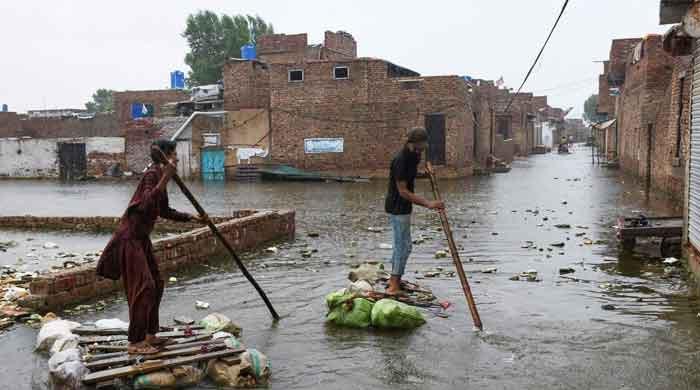Recognising Taliban as rulers of Afghanistan — I
For several reasons, this uncertainty over non-recognition is neither in Kabul’s interest nor good sign for world at large
November 25, 2024

Almost three and a half years have passed since the Taliban took over Kabul, yet no country has formally recognised their government.
This status quo is hampering much-needed economic development in the war-torn country. At the same time, it is limiting Afghanistan’s potential to serve as a lucrative corridor for the region and beyond.
For several reasons, this uncertainty is neither in Kabul’s interest nor a good sign for the world at large. Yet, the United States and other NATO members seem less concerned. The regional countries, however, are taking calculated steps to mitigate the security challenges posed by this volatile atmosphere.
By offering carrots, they are making efforts to convince Kabul that changing course would be beneficial to all. The diplomatic presence of over a dozen neighbouring countries in Afghanistan is a clear reflection of this stance.
Azerbaijan, China, Iran, Kazakhstan, Türkiye, Turkmenistan, Pakistan, Russia, and Uzbekistan have already opened their missions, while Indian diplomats are also serving in Kabul. At the same time, several European countries are also weighing this option. The Taliban know that they have a much better bargaining position than ever.
"Opening embassies is a decision of the countries themselves. Afghanistan does not beg anyone in this matter. If they want their embassy to be active, Afghanistan has no obstacles and security is ensured. Currently, we have embassies from more than sixteen countries in Kabul, all of them are active and have no problems," remarked Islamic Emirate’s spokesman Zabihullah Mujahid recently.
The question is, who will take the lead in recognising the Taliban, and what minimal steps must Kabul take to end the stalemate?
Pakistan, Saudi Arabia, and UAE
Back in the 1990s, only Pakistan, Saudi Arabia, and the United Arab Emirates recognised the Islamic Emirate as the legitimate ruler of Afghanistan.
Those were different times. Despite repatriating 0.75 million refugees, Pakistan is still home to 4.4 million Afghans. Yet, it faces ‘unprovoked border firing’ and other acts of aggression that claim innocent lives.
Hence, it seems practically impossible for Pakistan to recognise the Taliban government at present. There is also no sign that Abu Dhabi or Riyadh is interested in being the first to do so.
This is despite the recent meeting between Saudi Ambassador to Afghanistan Faisal Bin Talaq Al-Baqmi and Afghan Foreign Minister Mawlawi Amir Khan Muttaqi in Kabul.
During the talks, Muttaqi expressed hope that bilateral relations would be further enhanced. However, Al-Baqmi responded cautiously, stressing "pragmatic steps towards further developing relations with Afghans."
Similarly, Mawlawi Badreddin Haqqani presented his credentials to UAE’s Deputy Chief Protocol Affairs Saif Abdullah Al Shamsi. However, the appointment of the new ambassador has yet to yield significant results.
Badreddin is awaiting a date to present his credentials to the ruler of the United Arab Emirates.
Badreddin Haqqani is not related to Sirajuddin Haqqani, one of the most powerful Taliban leaders and the current interior minister. He had earlier served in a similar position in the UAE.
China’s bold step
Nevertheless, Chinese President Xi Jinping, despite his security concerns, has taken a bold step in formally accepting the credentials of the Taliban’s envoy to Beijing. Since then, Asadullah Bilal Karimi has been serving in China as a symbol of realpolitik.
Can China go a step further and formally recognise the Taliban?
Before answering this question, it is important to analyse why China has gone the extra mile to please the Taliban.
Beijing has successfully achieved its strategic objective by delivering a blow to the separatist movement in Xinjiang. It least wants the infiltration of terrorists from Afghanistan into its region, which borders eight countries.
China is aware that post-US withdrawal, Afghanistan poses a bigger threat than at any point in recent history. In an interview, China’s special envoy for Afghanistan stressed that after 20 years of US occupation, more than 20 terrorist groups existed, while there were only one or two when NATO intervened in Afghanistan.
Similar reservations were expressed in Samarkand during the fourth meeting of Foreign Ministers of Neighboring Countries of Afghanistan, a unique initiative launched by Pakistan on September 8, 2021.
Earlier, the foreign ministers of China, Iran, Pakistan, Russia, Tajikistan, Turkmenistan, and Uzbekistan met in Islamabad, Tehran, and Tunxi to address the Afghan quagmire.
However, the Samarkand declaration "pointed out that all terrorist groups, namely the Islamic State of Iraq and the Levant (ISIL), Al-Qaeda, the Eastern Turkistan Islamic Movement (ETIM), Tehrik-e-Taliban Pakistan (TTP), Baloch Liberation Army (BLA), Jundallah, Jaish-al-Adl, Jamaat Ansarullah, and the Islamic Movement of Uzbekistan (IMU), and other terrorist organisations based in Afghanistan continue to pose a serious threat to regional and global security."
"Terrorism is a primary concern for all parties. This is why China is actively participating in supporting all parties in peace and reconstruction in Afghanistan, mobilising assistance from regional and international communities, and cooperating with Afghanistan to achieve shared goals, including combating terrorism and ensuring security," Yue Xiaoyong explained China's stance.
Hence, intense engagement is key to securing border areas.
Since the Taliban took over Kabul, Beijing has also provided them with $64 million in humanitarian aid and a helping hand in reconstruction. It is equally pressing for a moderate and inclusive government.
Yue Xiaoyong said, "China supports achieving peace... This includes building a national political framework, forming a moderate and inclusive government, continuing humanitarian and developmental aid, enhancing security—especially cybersecurity—and working together for shared development."
Unlike the United States and some other Western countries, China does not consider women's issues a top priority.
"The issue of women, which you mentioned, is an important topic and has received widespread attention. However, it is neither the entirety of Afghanistan’s problems nor the main or root cause. We must continue to prioritise Afghan women while also collaborating with the global community to tackle Afghanistan’s most pressing challenges, such as poverty, hunger, refugees, and terrorism threats," replied a Chinese diplomat to a question.
Ambassador Yue had recently traveled to Pakistan as well. He held talks with Foreign Secretary Amina Baloch and Additional Secretary Ahmad Naseem Warraich. No concrete declaration was issued, but it was stressed that "Both sides exchanged views on relations with Afghanistan and affirmed the vital role of neighboring countries for a peaceful and stable Afghanistan."
To be continued...
The author is Controller News at Geo News. He posts on X at @NasimHaider2 and can be reached at [email protected]











